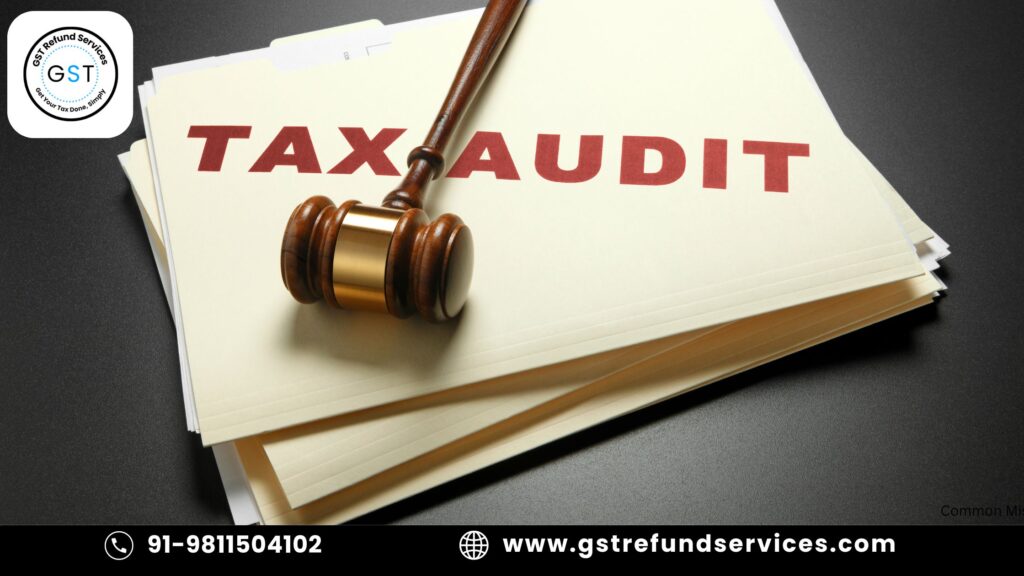
A GST audit is required to confirm that your company files transactions accurately, claims Input Tax Credit (ITC) correctly, and follows with GST requirements. It may seem difficult to prepare for a GST audit, but with the correct procedures, you can manage the process effectively. Here’s a helpful guide to ensure effective preparation.
1. Understand the Audit Scope and Requirements
Before the audit begins, familiarize yourself with the scope and requirements. Your financial records, GST returns, and supporting documentation for a given time period are often reviewed as part of the GST audit. You can prepare the required paperwork and take care of any possible problems if you know what the auditors will be looking at.
2. Reconcile Your Records
- GST Returns Reconciliation: Ensure that all your monthly (GSTR-1, GSTR-3B) and annual returns (GSTR-9) are accurate and consistent with each other. Reconcile the data reported in your returns with your financial records to identify and rectify discrepancies.
- Invoice Matching: Verify that all invoices recorded in your accounting system match the invoices reported in your GST returns. Ensure that both sales and purchase invoices are accurately recorded and reconciled.
3. Review Input Tax Credit (ITC) Claims
- Eligibility and Documentation: Check that all ITC claims are supported by valid invoices and are in compliance with GST rules. Ensure that you have proper documentation for all claimed credits.
- Reversals and Adjustments: Review any ITC reversals or adjustments made throughout the year. Ensure these are correctly recorded and justified as per GST regulations.
4. Organize Financial Documents
- Maintain Accurate Records: Keep all financial documents, including purchase and sales invoices, credit notes, debit notes, and contracts, well-organized and readily accessible. Ensure that all papers are neatly filed so they are simple to find.
- Document Retention: Follow the GST guidelines on document retention periods. Typically, records should be maintained for at least six years from the end of the financial year.
5. Conduct Internal Audits
- Pre-Audit Checks: Perform internal audits to review your GST compliance and identify any potential issues before the official audit. This helps in addressing any discrepancies or non-compliance proactively.
- Corrective Actions: Implement corrective measures based on internal audit findings to ensure that your records and processes align with GST requirements.
6. Communicate with the Auditor
- Provide Information Promptly: Cooperate with the auditor by providing requested information and documentation in a timely manner. Clear and prompt communication helps in facilitating a smooth audit process.
- Clarify Doubts: If you have any questions or concerns about the audit process, discuss them with the auditor. Understanding their expectations can help you prepare better.
7. Seek Professional Assistance
- Consult Tax Professionals: Engage a GST consultant or tax professional to guide you through the audit preparation process. They can help you understand complex regulations, review your records, and address any issues before the audit.
- Legal Support: If necessary, seek legal support to handle any disputes or clarifications required during the audit process.
8. Prepare for Post-Audit Actions
- Review Audit Findings: After the audit, carefully review the findings and recommendations provided by the auditor. Address any issues raised and implement corrective measures as needed.
- File Appeals if Necessary: If you disagree with the audit findings or any penalties imposed, you have the right to file an appeal or seek a review of the audit results.
Preparing for a GST Audit examination demands careful preparation, exact maintaining records, and aggressive leadership. By following these essential steps and best practices, you can ensure a smoother audit experience, minimize the risk of penalties, and maintain compliance with GST regulations. Stay organized, seek professional assistance, and address any issues promptly to achieve a successful audit outcome.For expert assistance with your GST audit preparation and to ensure compliance, contact us at GST Refund Services. We’re here to support you through every step of the process and help you achieve seamless GST compliance


